Greatest review of “Garden State” ever
15 August 2014
Just do yourself a favor and read Lindy West’s “I Re-Watched Garden State and Will Never Feel Again” over at Jezebel. You will laugh. You will never watch Garden State again.
A snippet:
Natalie Portman’s character claims to be a human being but is actually a genie that exists entirely within the mind of Zach Braff’s dreaming penis. Much has already been written about this, so I will not rehash it in great detail. She tap-dances. She lies, puckishly. She emcees somber hamster funerals. She introduces strangers to her blankie. She figure-skates in a crushed-velvet alligator costume. She wears an epilepsy helmet just long enough to facilitate a wise and bittersweet moment and then never wears it again. She walks over to her record player and opens the lid but doesn’t put a record on just to make VERY SURE you know she has one.
Here are some words that Zach Braff wrote down for Natalie Portman to say throughout the course of the movie:
“My hair’s blowin’ in the wind.”
“Can we have code names?”
“You know what I do when I feel completely unoriginal? [WORST THING EVER HAPPENS] I make a noise, or do something that no one has ever done before. Then I can feel unique again, even if it’s only for a second.”
“If you can’t laugh at yourself, life’s going to seem a whole lot longer than you’d like.”
“I’m weird, man.”
OH, ARE YOU? TELL ME MORE.
If I were, say, 15 years younger I would aspire to such writing, but at my advanced age I think it would be unseemly. Still, I envy her final two sentences with a passion that rivals what I feel for a certain pair of boots that cost an amount I am not allowed to spend on anything whatsoever.
Blecch, Garden State.
“Black Swan” (2010) and perfect girls
28 January 2011
“I just want to be perfect,” Natalie Portman’s character Nina explains to her director Tomas (Vincent Cassel), when she defends her gifts as a dancer. Perfect, but she’s not good enough. Honestly, I think that in 100 years when historians look back at the condition of women at the turn of the 21st century, they will use “I just want to be perfect” as the most cutting, accurate articulation of our culture’s contradictions. And when I say this, don’t focus solely on the word perfect — think about the word just as well. It’s a statement that begs for approval from others, assumes an impossible standard, and modestly begs not to be seen as unattractively ambitious. Viewers of Black Swan: get ready to enter our world.

Am I exaggerating? Certainly not for young women like Nina (Portman). Back in 2003 Duke University was rocked by an anonymous letter to the editor of the campus paper that described a woman’s slow loss of confidence during her undergraduate years at Duke. She explained that women undergrads adhered to the ideal of “effortless perfection” — the notion that they should have perfect hair, clothes, weight, grades, and success — demands made all the more impossible because girls must never display the crushing effort required to achieve any of it. They exercised on treadmills for hours to be able to eat pizza later on. They just had to be perfect. The letter led to the usual results (hand-wringing by the Women’s Studies department, denials that there might be a problem) but here’s the thing: this is hardly limited to Duke. The New York Times featured a story in 2007 about high school girls who do everything — and likewise strive to be “perfect” — and still get rejected, crushingly, from colleges. We’ve been bemoaning the diseases of anorexia, bulimia, and other distorted body image issues for more than a generation now; it doesn’t take much to see that thinness is part and parcel of a broader set of demands that likewise have overwhelming psychological effects on girls. Perfect, perfect, perfect. It’s the disease of our time. Is this movie an elaborate metaphor for the experience of girls and young women?

Who’d be more susceptible to this psychic burden than a ballet dancer? The competition, the necessary precision, the need to be beautiful as well as freakishly talented, the toll on one’s body. Portman has famously discussed losing a whopping twenty-plus pounds from her tiny body for the role (“I thought I was going to die,” she explained), a statement that has elicited little sympathy on the part of journalists, who write callous headlines like, “Does Natalie Portman weight loss mean Oscar gold?” No wonder there are so many scenes of her alone, picking at a loose piece of skin or afraid to look in a bathroom mirror, all of it taking place in cold, hard rooms. Want to read a brilliant, almost prose-poem piece on this film? Take a look at Kartina Richardson’s essay at Mirror on Black Swan, women, and bathroom mirrors (I can only admire the flow of good writing). As much as I watched this film with true amazement at what Portman achieved as a dancer for this role, I have a hard time thinking of this as simply a role; it sounds as if the actress herself spiraled down into a kind of method-acting hell. Thank you, Natalie Portman, for speaking candidly about the part’s difficulties, rather than pretend her physical perfection in the part came without effort. We would do well to follow her lead rather than focus on the post-production fact that she gained back the weight and got pregnant with her fiancé, also a dancer.

With all the conflicting expectations, no wonder Portman’s character starts to split in two. Is this because she’s unhealthy or too emotionally fragile, placing too many demands on herself? No, it’s because other people do, too. She’s perfect — the perfect daughter, a perfect dancer — but she’s not sexy enough to be the Black Swan. “When I look at you, all I see is the White Swan,” her director Tomas tells her. “Yes, you’re beautiful, restrained, graceful. Perfect casting. But the Black Swan … it’s a hard fucking job to dance both.” He patronizingly advises her to masturbate — to loosen up, to seduce him and the audience as the Black Swan. Yet when she does, she falls from grace as a perfect daughter; she looks with new eyes at her little-girl bedroom, all pink and white and stuffed animals and a ballerina music box. In the process she starts to see another version of herself on the sidewalk, on the train, in the mirror. It goes without saying that the demands of heightened sexuality don’t loosen her up at all; they start to destroy her. I find it apt and poetic that if you google “perfect girls,” you get a whole list of porn sites.

For all of these reasons I find it impossible to view Black Swan as just a film, or a thriller, or a psycho-sexual melodrama, or as any of the other tidy descriptors used to characterize it. In fact, I find it impossible to view it as a critic — I can’t tell you whether this is a good film or whether Portman deserves the best-actress Oscar because it hits too many of my nerves. I can’t help seeing it as a fractured fairy tale with ingredients stirred in by Carl Jung, the modern modeling industry, and feminists given to telling cautionary tales. Did I “enjoy” watching it? Not in the least. Do I think it’s a historic visual testament to the tolls of Effortless Perfectionism? Oh my god, yes. It’s the return of the repressed, this film. Of course, I also believe that some viewers will be distracted by the lesbian sex scene, and that my views of this film as I’ve framed them here will not be typical. But just you wait: 100 years down the line, this’ll be the film that appears in all those women’s history classes — I can only hope those future female undergrads have found a way out of the psychic prison their forebears experienced.





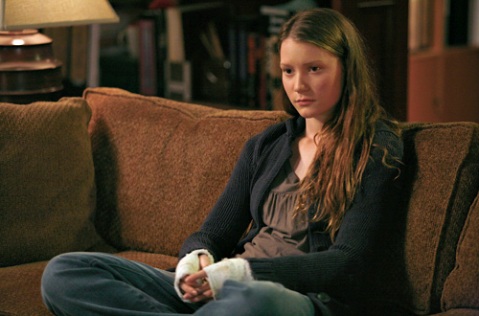
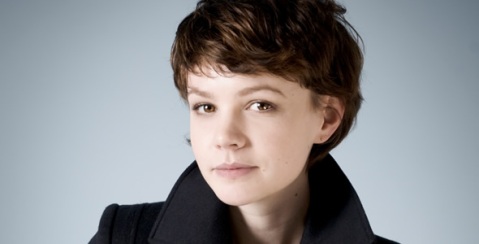
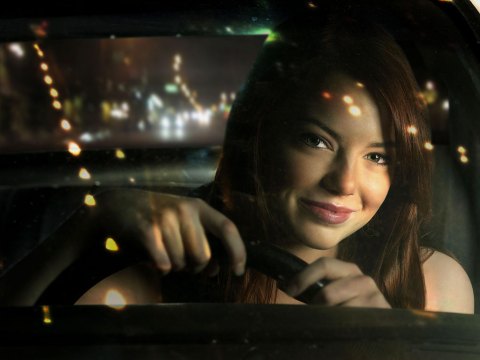
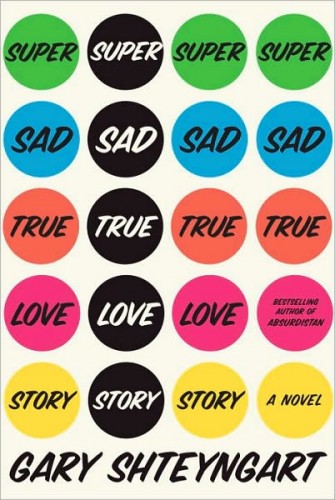
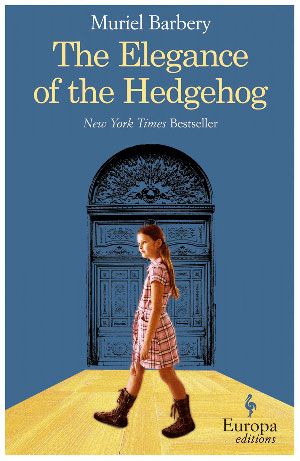 I’ve plunged myself into Muriel Barbery’s wonderful novel, The Elegance of the Hedgehog, which moves back and forth between the interior monologues of two brilliant women: the autodidact Renée, who hides behind her mask as an unkempt, sullen concierge in an elegant Paris apartment building; and Paloma, the precociously intelligent 12-year-old who lives upstairs and despises the pretentions of her family, teachers, and classmates. They seem to be on a path to discover one another — but I’m at the point in the novel when I’m so enjoying just listening to them think out loud that I’m not sure I care whether the narrative goes anywhere (Paloma has a diatribe about why grammar is about accessing the beauty of language that’s so wonderful I’m thinking of plagiarizing it for use in my classes).
I’ve plunged myself into Muriel Barbery’s wonderful novel, The Elegance of the Hedgehog, which moves back and forth between the interior monologues of two brilliant women: the autodidact Renée, who hides behind her mask as an unkempt, sullen concierge in an elegant Paris apartment building; and Paloma, the precociously intelligent 12-year-old who lives upstairs and despises the pretentions of her family, teachers, and classmates. They seem to be on a path to discover one another — but I’m at the point in the novel when I’m so enjoying just listening to them think out loud that I’m not sure I care whether the narrative goes anywhere (Paloma has a diatribe about why grammar is about accessing the beauty of language that’s so wonderful I’m thinking of plagiarizing it for use in my classes).



